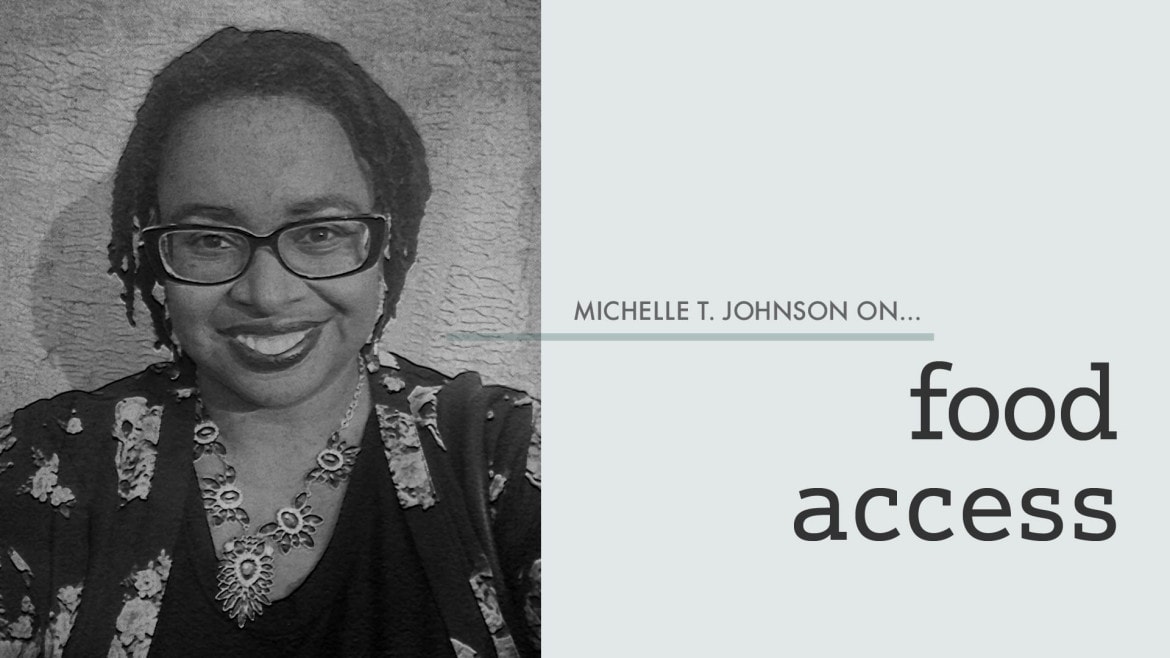How Our Grocery Stores Connect to the Great Health Care Debate

Published March 16th, 2017 at 6:00 AM
When my grandmother was alive we had a running joke that if she wanted something from the grocery store she had to give me plenty of notice so that I could get it from a store near me, not the one close to her.
My grandmother is gone, that store is closed, and I now live in my grandmother’s old house in Wyandotte County. But I still remember how the few times I walked in that store (named after swine), the smell of rotting vegetables and questionable meat from the butcher’s department immediately assaulted my nose.
I thought then — and I still think now — how it’s a luxury and a privilege to have good food within walking distance of your home, or good transportation to get you to it quickly. And more so than ever, I see how access to food is access to health and that access can be plotted on the grid of income.
When I read recently that Thriftway Store on Main closed, my heart sunk, thinking of all the people in the Midtown area that relied on that store. I know stores and restaurants shut down. It happens in a lot of neighborhoods, but this is about more than people needing to travel farther to buy an onion.
Grocery stores, especially in Kansas City, are community markers of health and health access.
Right now this country is having a huge conversation about health care — its cost, its availability, its potential loss. Health is fundamental and people are scared. It’s long past who you voted for in an election. It’s about who lives and dies and the vitality of how people live.
Grocery stores, especially in Kansas City, are community markers of health and health access.
I grew up and live now in a neighborhood with limited access to diversity and quality of food. In an average month, I’m all over the greater Kansas City, Missouri area. I might be at the Whole Foods in Johnson County getting pasta-cut zucchini or I might be in North Kansas City getting my frozen garlic mussels from Aldi’s or, before it closed, I might be at the Thriftway in Midtown getting pork neck bones. That’s my point — I have to travel.
And in each of those stores, I’m floored by the differences in access and price. And, of course, I think of the correlation to health.
A person who can get to a quality store gets to choose from milk without lactose, cow’s milk, soy milk, almond milk, kefir milk, and more. That’s access to more kinds of dairy than some people even know exists, or certainly get to choose from.
I’m glad that Rollin’ Grocer brings food to neighborhoods where there is a food desert. But we need to see how our grocery stores in Kansas City are symptomatic of the still divided city in which we live. This health care debate — ObamaCare vs TrumpCare — is very much about who we value in the country. It’s about how many of the poor, elderly and sick we’re willing to leave out in the cold, to get a cold, that turns into a pneumonia they can’t afford to pay for.
Our grocery stores, especially the ones that close, already tell us our values.


